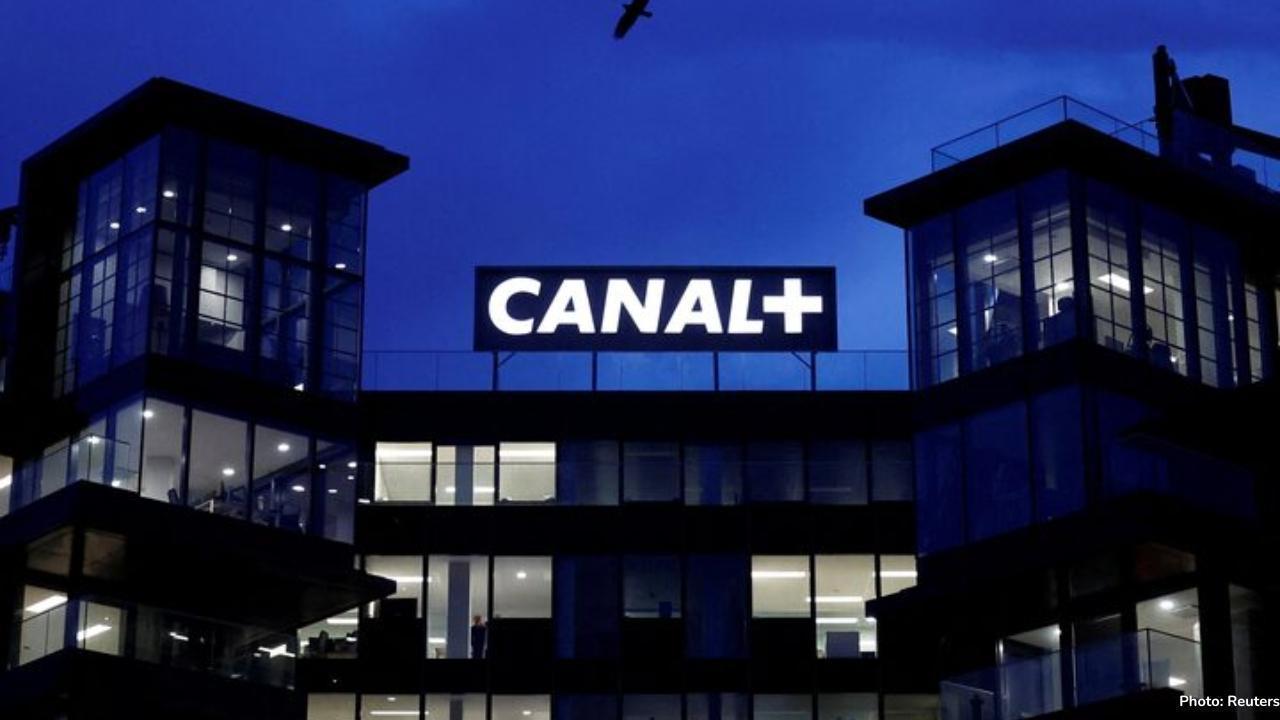
Post by : Monika
French media company Canal+ has announced plans to list its shares on the Johannesburg Stock Exchange (JSE) after its recent acquisition of South African broadcaster MultiChoice for 35 billion rand ($2 billion) in September 2025. This strategic move is part of Canal+’s ongoing plan to strengthen its presence in Africa, where the company now reaches over 40 million subscribers in almost 70 countries. By pursuing a secondary listing in Johannesburg, Canal+ aims to give South African investors easier access to its shares and maintain liquidity in the local market.
Expansion into African Markets
The acquisition of MultiChoice is a major step in Canal+’s strategy to expand into English-speaking African countries. MultiChoice is a well-established media company in Africa, operating the DStv satellite service and Showmax streaming platform. By acquiring MultiChoice, Canal+ gains access to an extensive customer base and a wide range of local content. This strengthens Canal+’s competitive position against other global streaming and broadcasting companies operating in the region.
Canal+’s management stated that the secondary listing on the JSE will allow South African investors to continue holding and trading shares easily, even after MultiChoice’s shares are delisted from the JSE. The move is subject to regulatory approvals, but once completed, it will make Canal+ shares more accessible in one of Africa’s most important financial markets.
Primary Listing in London
While Canal+ plans the secondary listing in Johannesburg, it will maintain its primary listing on the London Stock Exchange (LSE). The LSE offers a "Secondary Listing" option for companies that want to broaden their investor base without facing the full regulatory burden of multiple stock exchanges. This approach allows Canal+ to attract international investors while meeting local market needs in South Africa.
The dual-listing strategy benefits the company in several ways. First, it provides a larger pool of investors, both locally and internationally, which can increase share liquidity and trading activity. Second, it strengthens Canal+’s brand presence in Africa, showing a commitment to local investors and markets. Third, it allows Canal+ to raise capital more efficiently if needed for further expansion or investment in content and technology.
Integration of MultiChoice
Canal+ has already started planning how to integrate MultiChoice into its operations. This includes combining management teams, aligning technology platforms, and enhancing content offerings across Africa. The company plans to announce detailed integration steps in the first quarter of 2026.
The integration is expected to provide significant benefits. For example, Canal+ can offer a wider variety of content to subscribers, including both French-language and English-language programs. This can help attract new customers and retain existing ones. Additionally, Canal+ can share technological expertise with MultiChoice, improving streaming quality and customer service.
Market Reactions and Investor Perspective
The market has responded positively to Canal+’s acquisition of MultiChoice and its plans for a secondary listing. Analysts note that the move strengthens Canal+’s position in Africa, a region with high potential for growth in both pay-TV and streaming services. Africa has a young population and increasing internet penetration, making it an attractive market for media companies looking to expand their subscriber base.
For South African investors, the secondary listing offers a chance to invest directly in Canal+ and benefit from its international growth. It also ensures continuity after MultiChoice shares are delisted. For international investors, maintaining the London primary listing means they can continue trading shares in a familiar market with strong regulatory standards.
Regulatory Approvals
Canal+’s plan to list on the JSE requires approvals from several regulatory bodies in South Africa. These approvals ensure that the secondary listing complies with local rules and protects investors’ interests. The company is working closely with regulators to complete this process smoothly. Once approved, Canal+ shares will be traded alongside other major South African and international companies, increasing visibility and credibility in the market.
Content and Technology Strategy
One of the key reasons behind Canal+’s acquisition of MultiChoice is access to content. MultiChoice has a strong library of African programs and sports content, which is highly valued by subscribers. By combining Canal+’s European content with MultiChoice’s African content, the company can offer a more diverse and appealing service to viewers across the continent.
In addition to content, Canal+ is investing in technology. Streaming platforms, satellite services, and customer service systems will be upgraded to provide a smoother and more reliable experience for subscribers. This technological improvement is critical to competing with global streaming giants such as Netflix, Disney+, and Amazon Prime Video.
Economic Impact
The secondary listing and integration of MultiChoice are expected to have positive economic effects in South Africa. Canal+ plans to retain and expand local jobs, especially in content production, customer service, and technical support. The company’s investment could also encourage other international media companies to consider expansion in Africa, boosting the region’s media and entertainment sector.
Challenges and Future Outlook
Despite the opportunities, Canal+ faces some challenges. Integrating two large companies across multiple countries is complex and can take time. Regulatory hurdles, cultural differences, and technological integration need careful management. Additionally, competition in African media and streaming is increasing, with both local and international players seeking to grow their market share.
However, Canal+’s management is optimistic. The combination of a strong African brand, international expertise, and strategic investment in content and technology is expected to create long-term value for shareholders. Analysts predict that if integration is successful, Canal+ could see substantial growth in revenue and subscriber numbers over the next five years.
Canal+’s decision to pursue a secondary listing on the Johannesburg Stock Exchange reflects its commitment to Africa and its strategic vision for growth. By acquiring MultiChoice, the company gains a strong foothold in the continent’s English-speaking markets, access to local content, and a large subscriber base. Maintaining the primary listing in London ensures international investor confidence, while the secondary listing provides local investors with continued access to shares.
The integration of MultiChoice, investment in technology, and focus on content diversification position Canal+ to be a leading media company in Africa. While challenges remain, the company’s approach combines local and international strategies to maximize growth and shareholder value.
Overall, Canal+’s expansion into Africa and dual-listing strategy demonstrate a careful balance of global ambition and local engagement, highlighting its potential to become a dominant player in the African media landscape.










Mattel Revives Masters of the Universe Action Figures Ahead of Film Launch
Mattel is reintroducing Masters of the Universe figures in line with its upcoming film, tapping into

China Executes 11 Members of Criminal Clan Linked to Myanmar Scam
China has executed 11 criminals associated with the Ming family, known for major scams and human tra

US Issues Alarm to Iran as Military Forces Deploy in Gulf Region
With a significant military presence in the Gulf, Trump urges Iran to negotiate a nuclear deal or fa

Copper Prices Reach Unprecedented Highs Amid Geopolitical Turmoil
Copper prices soar to all-time highs as geopolitical tensions and a weakening dollar boost investor

New Zealand Secures First Win Against India, Triumph by 50 Runs
New Zealand won the 4th T20I against India by 50 runs in Vizag. Despite Dube's impressive 65, India

BTS Tour Sparks Global Demand: Mexico Appeals for Additional Shows
BTS' comeback tour creates immense demand in Mexico, prompting President Sheinbaum to urge more conc